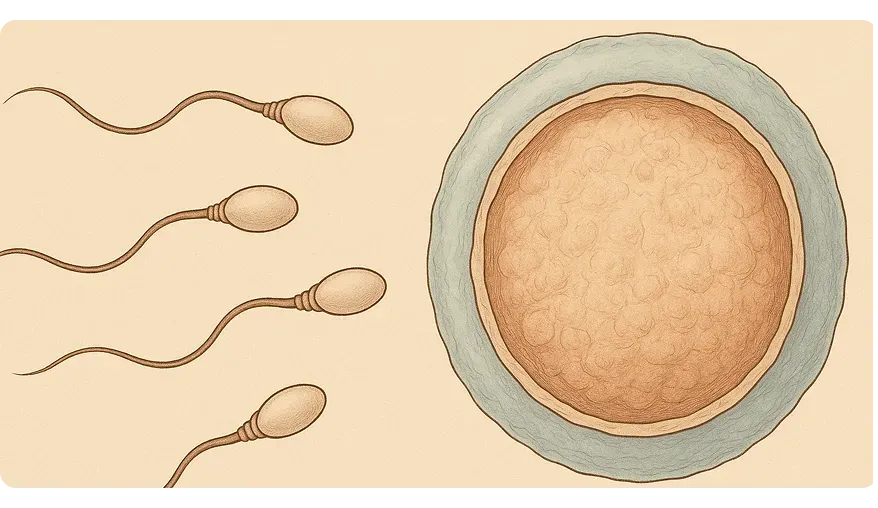Treatments
Fertility-Sparing Cancer Treatment Options for Women of Reproductive Age
Preserving Your Future — Without Compromising Your Care
Dr. Lucas Minig – Minimally Invasive Surgery Expert Care for Chronic women with gynecological cancer at reproductive age.
Request Consultation or Second Opinion

Your diagnosis may have changed your timeline, but it doesn’t have to cancel your dreams.
At our center in Valencia, we offer leading fertility-sparing treatments for gynecologic cancers — designed for women who want to protect their ability to have children. Whether you’re facing cervical, endometrial, or ovarian cancer, Dr. Lucas Minig and his team are here to help you navigate options that are evidence-based, minimally invasive, and deeply personalized to your life goals.
You Shouldn’t Have to Choose Between Healing and Hope
Up to 20% of women diagnosed with gynecologic cancer are still in their reproductive years. Many are actively planning for children—or still dreaming of the chance.
But when cancer touches the uterus, ovaries, or cervix, it can feel like those plans are slipping away.
We’re here to tell you: in many cases, they don’t have to.
Thanks to decades of progress and a deep understanding of both oncology and fertility, it’s possible to treat cancer while preserving your reproductive future—when conditions are right.
Our Valencia-based team specializes in helping women explore those possibilities.
Patients from around the world trust our expertise to treat even the most complex cases that local providers may not manage.

What Is Fertility-Sparing Cancer Treatment?
Fertility-sparing care means treating your cancer while preserving your ability to carry a child in the future.
This often involves keeping at least one ovary, the uterus, or part of the cervix intact—while still removing all signs of disease.
But it’s not just a surgical choice. It’s a full-person decision guided by:
- Your diagnosis and cancer stage
- Your age and ovarian reserve
- Your values and family planning goals
Every woman deserves to understand her options—not just her prognosis.
When Is Fertility-Sparing Care Possible?
Fertility-sparing treatments are most appropriate in early-stage cases of:
- Cervical cancer
- Endometrial (uterine) cancer
- Select types of ovarian tumors (including germ cell and borderline tumors)
Your eligibility depends on:
- The size and spread of your tumor
- Whether lymph nodes are affected
- Your general health
- Your personal wishes
This decision is never made lightly. We conduct full staging, biopsy, and imaging to evaluate if a conservative approach is possible—and safe.
Treatment Options by Cancer Type
Cervical Cancer (Early Stage)
Cervical Conization
Removal of a cone-shaped section of tissue from the cervix. Ideal for pre-cancer or microinvasive disease.
Conization + Sentinel Lymph Node Biopsy
In select cases, we check for microscopic spread while preserving fertility.
Radical Trachelectomy
Removal of the cervix while leaving the uterus. We reconnect the uterus to the vagina, and place a stitch (cerclage) to support future pregnancy.
Performed laparoscopically or robotically.
Ovarian Cancer
Unilateral Salpingo-Oophorectomy
- If confined to one ovary and histology allows, we preserve the opposite ovary and uterus.
Cystectomy
- For benign or borderline tumors, we remove only the cyst while preserving ovarian tissue.
Endometrial Cancer
- High-Dose Progestin Therapy
For very early stage, low-grade tumors, hormonal therapy can control the cancer while keeping the uterus. - Hysteroscopic Resection + Hormonal Therapy
Removal of the lesion followed by monitored hormone treatment.
What to Expect After Treatment
Healing after radical cytoreduction surgery is a journey—and we guide you through every step with clarity, compassion, and personalized support.
Strict monitoring
You’ll receive dedicated follow-up care every 3–6 months, including MRI or transvaginal ultrasound and lab testing. This ensures we can catch any early signs of recurrence and respond quickly. Our goal is to give you reassurance—not surprises.
Fertility planning support
Whether you’re hoping to conceive naturally or are exploring assisted reproductive technologies (ART) like IVF, we’ll help you navigate every option. Our team coordinates with fertility specialists to align your care with your goals and timeline.
Surgical follow-up
In some cases, definitive surgery may still be needed down the road. We’ll prepare you gently and transparently, with surgical plans that continue to prioritize your body, your wishes, and your overall wellbeing.
Emotional and psychological care
Fertility-sparing treatment is as emotional as it is medical. We offer mental health support, decision-making guidance, and space to process — because your experience matters as much as your outcome.
We’re not just focused on removing the disease—we’re here to support your life after surgery, too.
“At 32, I was diagnosed with cervical cancer. Dr. Minig performed a conservative surgery that allowed me to carry my daughter two years later. I never thought it was possible—but it was.”
— Sandra D., fertility-sparing patient, Valencia
Is This Surgery Right for You?
Not every patient is a candidate for immediate surgery. Factors we consider:
- age and overall health
- nutritional status
- disease distribution
- genetic testing (e.g., BRCA mutation)
- personal preferences and goals
If you’ve been told your cancer is “inoperable,” we recommend a second opinion. Many patients find new possibilities with our expert surgical review.
Why Choose Dr. Minig for Fertility-Sparing Cancer Care?
More than a clinic — we are your international partner in healing.
With over 20 years experience treating global patients, we offer personalized surgical care and full logistical support for those traveling to Valencia.
- Specialized Expertise: 20+ years in advanced gynecologic oncology
- Minimally Invasive Excellence: Over 95% of our surgeries utilize laparoscopic or robotic techniques.
- Individualized Care: We align treatment with your pain tolerance, fertility desires, and lifestyle.
- Whole-Woman Approach: From surgery to nutrition and emotional well-being, we support every facet of your health.
- Industry-Leading Research & Innovation
- Global Reach: Personalized logistical support for international patients

International patient welcome
Whether you’re in Europe, North America, or beyond, our clinic offers:
Tele-Consultations in English, Spanish and Italian
Concierge Travel Assistance for visas, lodging, and local transportation
Flexible Scheduling to accommodate your time zone
Frequently asked questions
What cancers can be treated with fertility-preserving surgery?
Fertility-sparing treatments may be possible in select cases of:
- Cervical cancer (e.g., via conization or trachelectomy)
- Endometrial cancer (with hormonal therapy in early stages)
- Ovarian cancer (unilateral surgery when cancer is confined to one ovary)
Every treatment plan is custom-designed to balance oncologic safety with reproductive goals.
Will preserving fertility affect my cancer prognosis?
When carefully selected, fertility-preserving treatments have been shown to be just as effective as more radical surgeries in early-stage cases. You’ll be closely monitored with follow-ups, imaging, and pathology to catch any signs of recurrence early. Our goal is to offer hope without compromising your health—because both matter equally.
Am I a candidate for fertility-sparing treatment?
Fertility-sparing options are considered for women with early-stage gynecological cancers who wish to preserve their ability to have children. Your eligibility depends on the type and stage of cancer, tumor size, and overall health. After a full evaluation, including imaging and pathology, we’ll advise whether a conservative approach is medically safe and effective in your case.
Ready for Relief? Let’s talk.
Whether you want our symptom kit, the patient guide, or to speak directly with Dr. Minig, we’re here for you.
